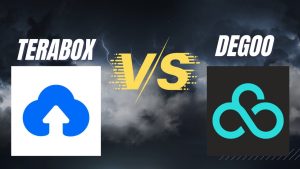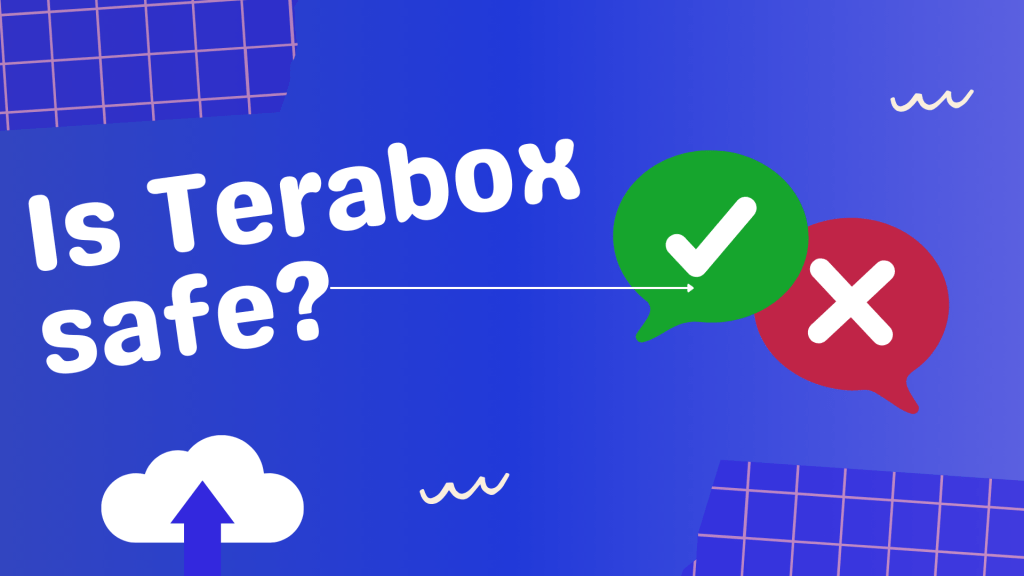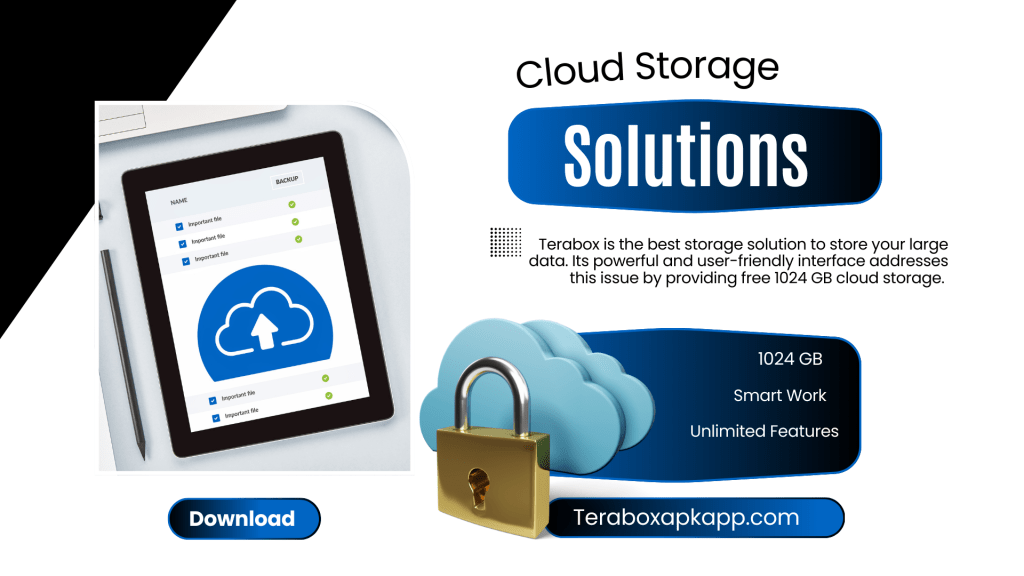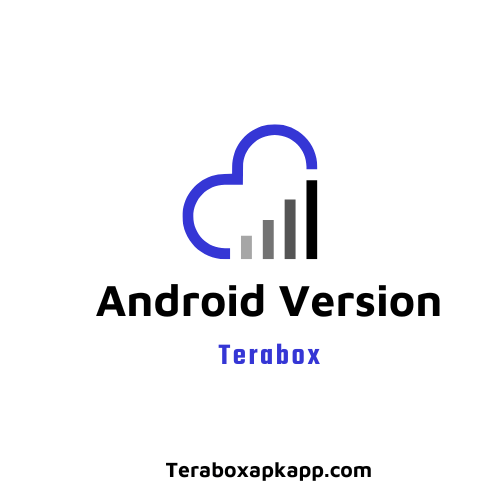Do you find it hard to manage your files and need a trusted cloud storage option? You’re not alone. Many people face the challenge of digital clutter. Picking the right service can make things easier for you. TeraBox offers generous free storage and smooth media playback. Degoo, on the other hand, stands out with an AI-based organization and strong security. Both have their own strengths. This guide will break down the key differences between TeraBox vs Degoo.
Let’s Compare TeraBox vs Degoo With Their Features
Now compare the TeraBox vs Degoo for your clarity to choose the best option that is right for you.
Free Storage Capacity
TeraBox: TeraBox offers a free plan that provides you with up to 1024 GB of storage. This offering is ideal for casual users who need significant space without any cost. Store photos, documents, and videos without worrying about running out of space quickly.
Degoo: Degoo provides you with 100 GB of free storage. This capacity is less than TeraBox but still caters to users who need basic storage for their files. Degoo’s free plan serves as a good entry point for those looking to test the service before committing to a paid plan.
Performance
TeraBox: TeraBox provides impressive upload and download speeds. Users enjoy quick access to their files. This efficiency enhances productivity. The service maintains high reliability and uptime. Files remain accessible whenever needed. TeraBox performs well for large file transfers. Users with significant storage needs find it suitable.
Degoo: Degoo offers competitive upload and download speeds as well. The service efficiently handles file transfers. Users experience a smooth interaction. Degoo maintains consistent reliability and uptime. However, TeraBox often performs faster for larger files. Many users appreciate this speed advantage.
Security Features
TeraBox: TeraBox emphasizes security through robust data encryption methods. This encryption protects your files from unauthorized access. TeraBox also offers two-factor authentication. Users must verify their identity through a secondary method. This extra step significantly enhances account security. Users find it harder for hackers to gain access.
Degoo: Degoo prioritizes user privacy with end-to-end encryption. Only you can access your files, even during storage or transfer. Degoo undergoes regular security audits. These audits help maintain compliance with industry standards. Users may prefer Degoo’s privacy features over others. TeraBox remains secure, but Degoo appeals more to those focused on privacy.
File Backup and Restoration
TeraBox: TeraBox provides flexible backup options. Users can choose between manual and automatic backups. This choice allows you to set preferences based on your needs. TeraBox features an effective file restoration process. Recovering lost or deleted files becomes easy. Users appreciate this control over backup routines.
Degoo: Degoo focuses primarily on automatic backups. Users can schedule backups to occur at specific intervals. This feature reduces the risk of data loss. Degoo includes backup history management. You can easily view and manage previous backup versions. TeraBox offers more manual control, appealing to users wanting flexibility.
User Interface
TeraBox: TeraBox features an intuitive web app interface. Users navigate their files and folders easily. The mobile app mirrors this experience, providing quick access to your files on the go. The design focuses on accessibility. Users of all tech skill levels find it suitable.
Degoo: Degoo’s web app also emphasizes ease of use. The clean and efficient interface allows you to manage your files without confusion. The mobile app supports seamless file management. You can access your data from anywhere. Both platforms offer user-friendly interfaces. TeraBox’s design may appeal more to those seeking simplicity.
Collaboration Tools
TeraBox: TeraBox includes robust file-sharing capabilities. You can share files easily with others. Customizable permissions give you control over who can view or edit your files. This feature benefits teams and collaborative projects. .
Degoo: Degoo also provides effective file-sharing options. The service focuses on features that enable collaboration. Users can share files and set permissions. However, TeraBox offers more detailed options. Those needing complex sharing features may find TeraBox advantageous.
Additional Features
TeraBox: TeraBox supports file versioning. Users can access previous versions of files quickly. This feature is essential for recovering lost data or reverting to an earlier state. You can track changes and restore files as necessary. Many users appreciate this capability.
Degoo: Degoo offers syncing capabilities across devices. Your files remain consistent and up-to-date. You can access your files from multiple devices. Worries about version discrepancies diminish. Both services have unique features. TeraBox’s file versioning provides significant advantages for recovering earlier file states.
TeraBox Pros & Cons
Pros:
- Offers a generous free storage capacity of 1024 GB.
- Supports easy file sharing with family and friends.
- User-friendly interface for seamless navigation.
- Flexible subscription plans accommodate various budgets.
- Allows access from multiple devices without hassle.
Cons:
- Limited customer support options compared to competitors.
- Certain features may require a paid plan.
- Users may experience slower upload speeds during peak times.
Degoo Pros & Cons
Pros:
- Provides strong security features, including end-to-end encryption.
- Offers AI-driven file management for efficient organization.
- Automatic backup capabilities reduce manual efforts.
- Flexible plans are available for different storage needs.
- Reliable for personal use, especially for privacy-focused users.
Cons:
- Free storage capacity is only 100 GB, less than TeraBox.
- Some users may find the interface less intuitive.
- Pricing can increase significantly for higher storage capacities.
Paid Plans and Pricing
TeraBox: TeraBox offers various paid plans to suit different user needs. Paid plans start at $3.49 per month and go up to $35.99 per year. Choose between a one-month or an annual subscription for flexibility in your budget. Each paid plan provides additional storage and features compared to the free plan.
Degoo: Degoo’s paid plans offer various pricing tiers as well. The basic paid plan starts at $3.99 per month, which includes 500 GB of storage. If you have more extensive needs, you can find plans that provide up to 10 TB of storage, with pricing varying significantly based on your chosen storage capacity.
Monthly Subscription Options
TeraBox: Monthly subscription options are available if you prefer not to commit long-term. The monthly plan includes all the features of the paid plan without requiring an annual commitment. This flexibility appeals to users who may need temporary additional storage.
Degoo: Degoo also offers a monthly subscription. You can choose a plan that suits your needs without being tied to a long-term contract. This option allows you to upgrade or downgrade as your storage needs change.
Annual Subscription Options
TeraBox: Save money with TeraBox’s annual subscription, which provides a discount compared to the monthly plan. The annual plan costs $35.99 for the entire year. This choice is cost-effective for long-term users who need reliable cloud storage.
Degoo: Degoo’s annual subscriptions offer significant savings as well. You can get more storage at a lower monthly rate by paying annually. Degoo’s pricing structure varies based on storage capacity, so evaluate the options to find the best fit.
Conclusion
TeraBox vs Degoo provides distinct advantages in cloud storage. TeraBox offers a generous amount of free storage, making it a great choice for personal users who need space. Degoo focuses on strong security features and uses AI to manage files effectively, appealing to users who prioritize data safety.
Your choice depends on your specific needs. If you want ample free storage, then you can select TeraBox. If you value robust security features, choose Degoo. Both services effectively cater to different user needs, ensuring that each offers something valuable. You can find the right fit based on what you require.
FAQs
Which cloud storage offers more free space, TeraBox or Degoo?
TeraBox offers more free storage with 1024 GB, while Degoo provides only 100 GB in its free plan.
Is Degoo safer than TeraBox?
Degoo focuses more on privacy with end-to-end encryption, making it a strong choice for security-focused users. TeraBox also uses encryption and two-factor authentication for safety.
Can I use TeraBox and Degoo on multiple devices?
Yes, both TeraBox and Degoo support access across multiple devices, including mobile phones, tablets, and desktops.
Which service is better for large file storage?
TeraBox is better for large file storage due to its high free storage limit and smooth handling of big files.
Does TeraBox or Degoo support file sharing?
Both platforms support file sharing, but TeraBox offers more flexible permission controls for collaboration.
Which is more affordable in paid plans, TeraBox or Degoo?
TeraBox generally offers more affordable paid plans compared to Degoo, especially for users needing moderate storage upgrades.




